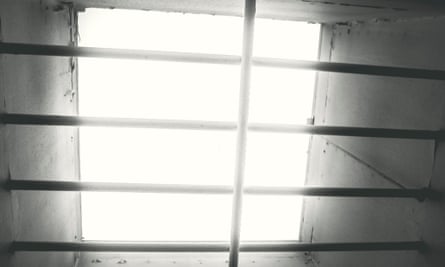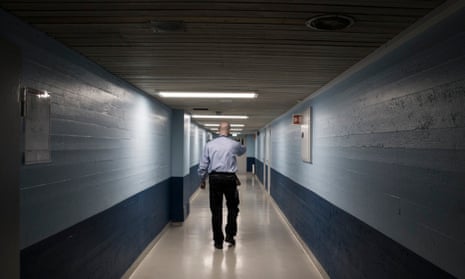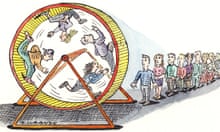What’s it all about?
The motivation for the campaign led by Children of Prisoners Europe (Cope, a European network of charitable organisations and partners in prison or child-welfare related fields) is very simple: to draw attention to the rights and needs of children separated from a parent in prison. It started in 2010, without a budget, and now with partners campaigns for this issue every June.
Each year the campaign targets policymakers and MEPs using postcards, emails and social media, in particular those members of parliament who have signed up to the child rights manifesto. At a national level, there has been a range of awareness-raising projects. Central to Cope’s campaign is the United Nations Convention on the Rights of the Child (UNCRC), which many EU member states have signed up to. The convention states that a child has a right to express their views freely (when possible) in all matters concerning themselves, a right to information, and a right to stay in contact with their parents.
Why should I care?
Figures for England and Wales show that if your parent goes to prison you are three times more likely to be involved in offending, and it is estimated that 800,000 children in Europe have an imprisoned parent. While there are plenty of failures in the penal system, the impact on children is one that is sorely overlooked.
Barnardos Scotland estimates that there are 27,000 children with a parent in prison in Scotland alone. But this figure is an estimate, because no one really knows just how many children are affected. Their situation is often hidden from teachers, friends, extended family and, ultimately, policymakers. The charity explained why it supported the Cope campaign: “We believe more needs to be done to identify and support children and young people affected ... families are left isolated in communities when a partner is sent to prison, often struggling to make ends meet and too afraid to seek support.”
As with many of the charities involved with Cope’s campaign that were contacted by the Guardian, they feel that this issue is hidden.
Why haven’t I heard of it?
The hashtag, #notmycrimestillmysentence hasn’t gone viral and the video isn’t glossy, or designed to make you involuntarily weep, but it’s simple and clear. It’s already been translated into Italian, French, English, Norwegian and Dutch and soon it will be available in Croatian, ensuring it’s inclusive, as opposed to so-called “international” campaigns that rely entirely on an understanding of English.
The video illustrates how children struggle to cope with their situation: “I miss her”, “I wish I could call when I want to”, “No one’s talking to me at school”. The children also describe finding the uniforms of the prison guards intimidating, the dogs scary, and how sometimes they don’t want to see their parents.
So what’s different about this campaign?
The sheer variety of groups involved, from some smaller prison reform groups to large children’s welfare charities and from Croatia to New York. There was also a concerted effort to preserve and support children’s voices in the campaign. Cope provided postcards, asking each supporting organisation to ask the children they work with to write about one thing they would like to see change.
Children from England share the 'one thing they would change' for #notmycrimestillmysentence campaign @networkcope pic.twitter.com/QNirTttZlQ
— POPS (@POPSFamilies) June 24, 2015
And the Norwegian member charity For Fangers Pårørende set up a photo project, Behind the Wall – through the eyes of children of prisoners in Europe. A group of young people with imprisoned parents were allowed to bring cameras into Ullersmo, a high-security prison outside of Oslo. A rare opportunity to see beyond the visitors’ area. It was featured on Norway’s national broadcaster, and Cope has also held a conference in Sweden to celebrate the country becoming a signatory to the UNCRC and a day of action involving members of parliament in the Netherlands.

What we like about it
It’s international, collaborative, and unashamedly policy heavy. A policy focus is inevitable when trying to create national and international change. By uniting at a European level, organisations can compare policy successes and failures, lobby MEPs as member states and collectively, and very importantly, pool data from national organisations to build their case. It’s staggering to think what could be achieved if other charities collaborated more frequently with their European counterparts.
Cope has also been savvy in attracting corporate support. By illustrating the human rights case for their work they attracted help from cosmetics company Lush. The profits raised from the sale of their Charity Pot – a hand and body lotion – helped fund the video.
What next?
More of the same. But that’s the way with long-term campaigns.
They had a breakthrough last year, when their Italian partner Bambinsenzabarre, signed a Memorandum of Understanding (a formal agreement) with the Italian justice ministry and the Italian ombudsman that formally recognises children’s right to a relationship with their imprisoned parent, and the parent’s right to play an active parenting role. The memorandum also tackles issues such as frequency of visits, training of judges, and staff and data collection.
Cope thinks this agreement may be the first of its kind, and now it is monitoring how it is put into practice. It is being translated into multiple languages and could be the precedent needed to bring about Europe-wide change and, given the interest and support from groups beyond the EU, potentially even further afield.
The network want no less than “a cultural shift inside the prison and outside”.
For more news, opinions and ideas about the voluntary sector, join our community.








Comments (…)
Sign in or create your Guardian account to join the discussion